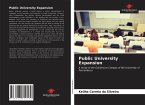The creation of the Innovation Law in 2004 was a breakthrough in the interaction between university and company, especially because in 2016 it contributed to the creation of the New Code of Science, Technology and Innovation, which establishes easier rules for innovations to reach society faster. In the relationship between the university and the company, there are antagonistic interests, different missions, different time cycles, objectives and motivations, but the interaction is necessary for the social benefit. The distance between the university and the business sector interferes directly in the productivity and competitiveness of the industry, since as well as the industry/company, the university also contributes to the economic development of the country. The objective of the work is to analyze the use of cooperation within an environment of open innovation, thus it is essential to overcome the existing barriers between universities and companies and the contracts as instruments to collaborate for this interaction, contracts that must be elaborated and interpreted not only under the focus of Law, but also of Economics.








